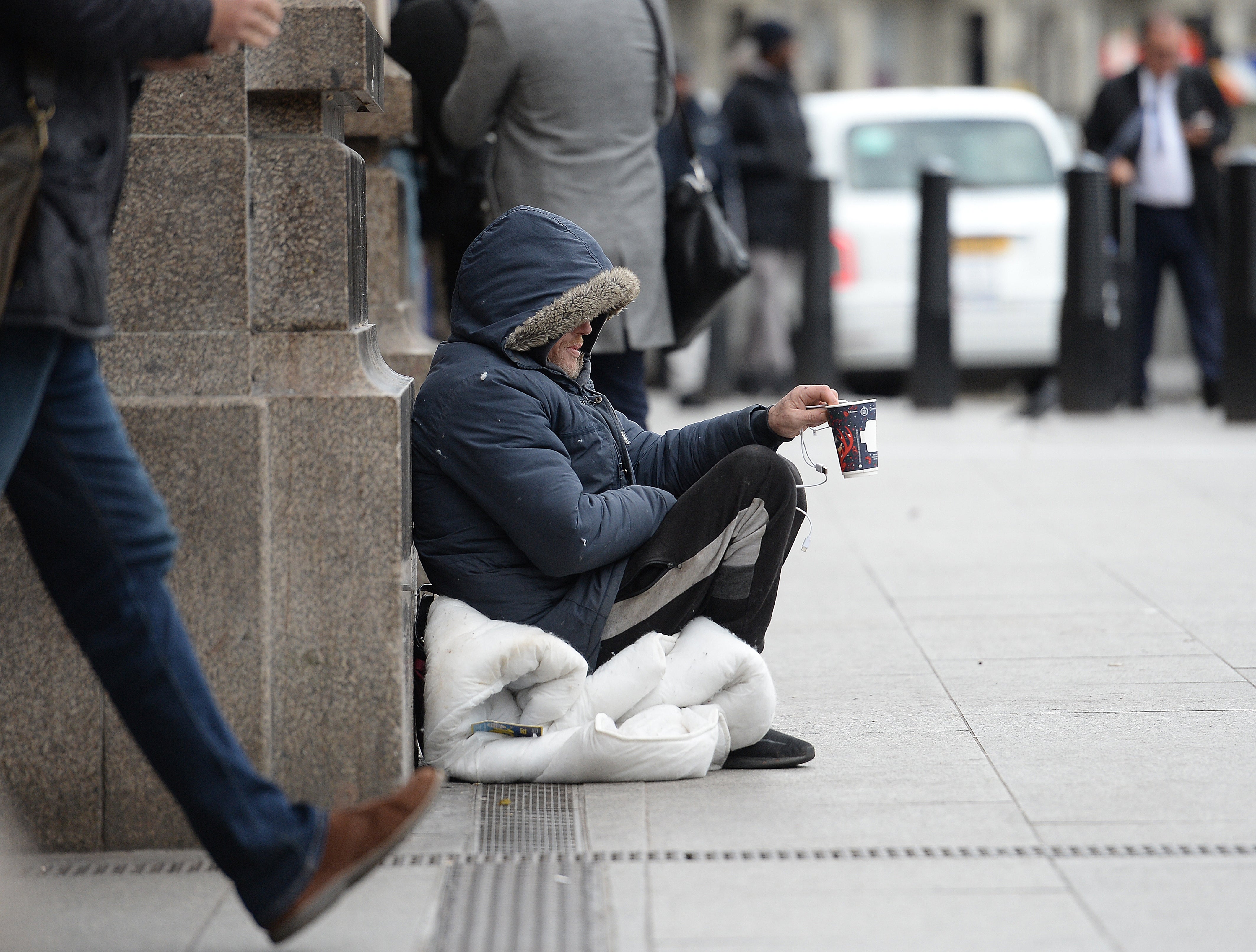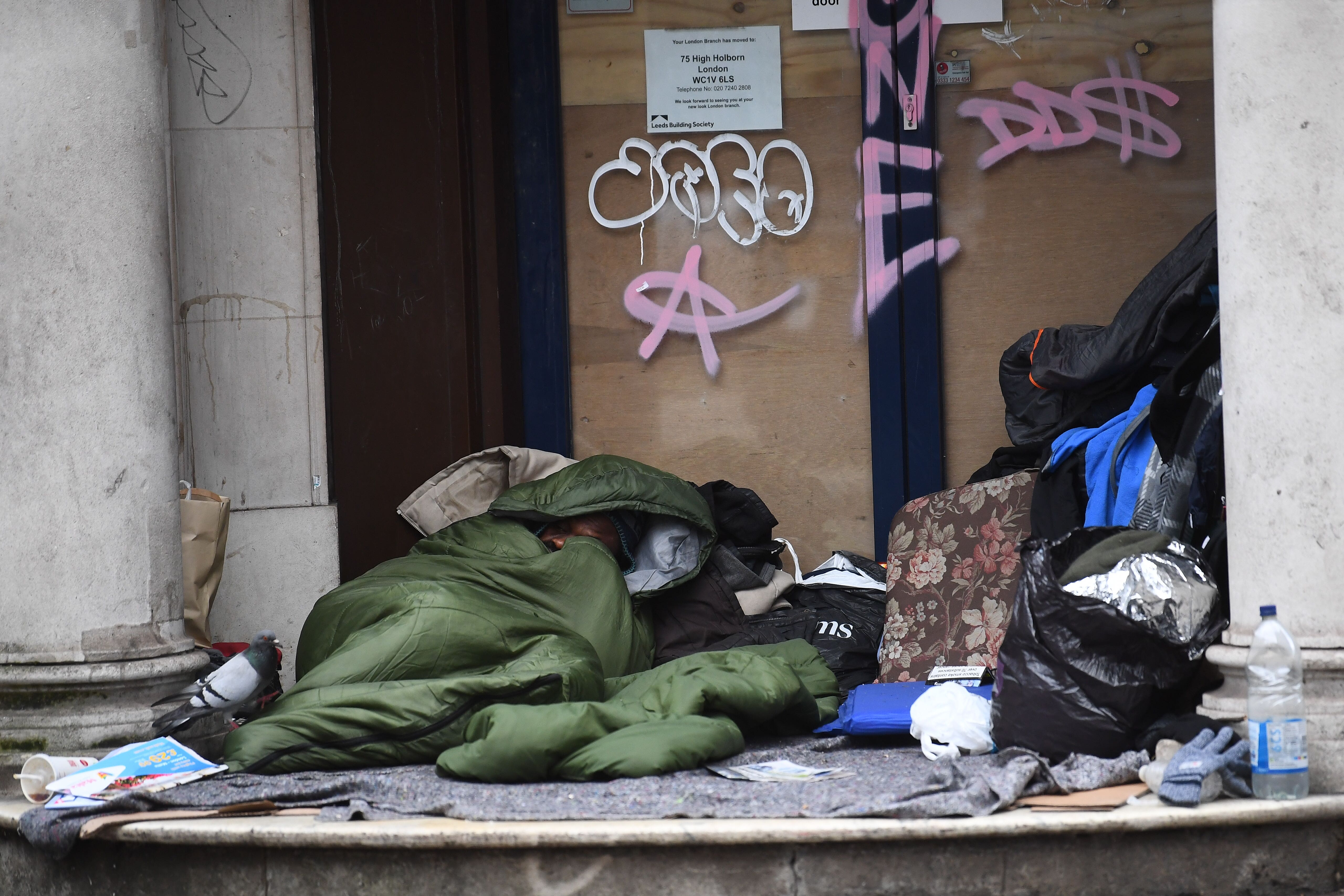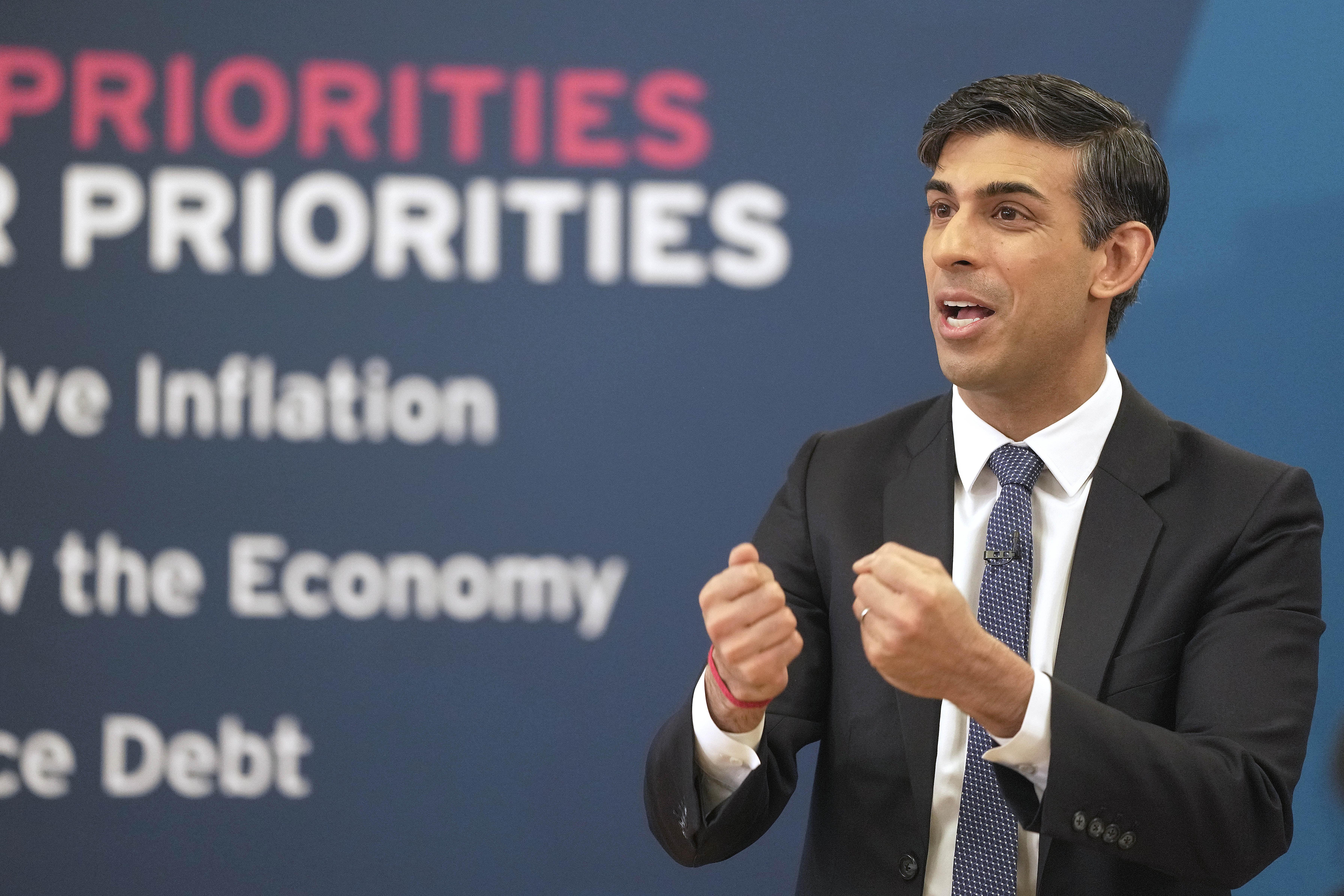‘Homelessness is not a crime’: Charities condemn government crackdown on ‘nuisance’ beggars
Homelessness charities have warned a new government measure, replacing the Vagrancy Act which criminalised all rough sleeping, will further result in the ‘criminalisation’ of homeless people

Your support helps us to tell the story
From reproductive rights to climate change to Big Tech, The Independent is on the ground when the story is developing. Whether it's investigating the financials of Elon Musk's pro-Trump PAC or producing our latest documentary, 'The A Word', which shines a light on the American women fighting for reproductive rights, we know how important it is to parse out the facts from the messaging.
At such a critical moment in US history, we need reporters on the ground. Your donation allows us to keep sending journalists to speak to both sides of the story.
The Independent is trusted by Americans across the entire political spectrum. And unlike many other quality news outlets, we choose not to lock Americans out of our reporting and analysis with paywalls. We believe quality journalism should be available to everyone, paid for by those who can afford it.
Your support makes all the difference.The government’s plan to deal with “nuisance” beggars will further the “criminalisation of vulnerable people,” homelessness charities have warned.
As part of a government crackdown on crime announced on Monday, prime minister Rishi Sunak said he would grant police and local authority workers new powers to order beggars to move on while encouraging them to make use of accommodation services and mental health support.
Another new offence will be created for criminal gangs organising begging networks, and a government release said people causing “nuisance on the street” would be moved on, pointing in particular at those “obstructing shop doorways and begging by cash points”.
Conservative MP for Ashfield, Lee Anderson tweeted a newspaper headline about the policy and appeared to signal his support for it, claiming he had recently been approached by a beggar who asked him to use a card to donate money via a chip and pin machine.
“I will not give money out ever again on the streets,” he said.
But homelessness charities have warned the government measures, which replaces the Vagrancy Act which criminalised all rough sleeping, will instead result in the “further criminalisation” of homeless people.
Fiona Colley, director of social change at Homeless Link, said she was “disappointed” by the plan.
“Homelessness is not a crime,” she said. “When the government committed to repealing the Vagrancy Act it was done with an understanding that people sleeping on our streets need to be supported not criminalised.
“Therefore, we are extremely disappointed to see that this new plan will result in further criminalisation of vulnerable people, rather than offering the constructive solutions that work in helping people off the streets for good.”
“This plan is a backwards step undermining the government’s own commitment to ending rough sleeping in this parliament”, she added.
Matt Downie, chief executive of homeless charity Crisis, called the proposal “incredibly disappointing”.
“It cannot be overstated how traumatic, dangerous and dehumanising life on the streets is,” he said. “For the thousands enduring this right now, every day is a struggle to survive as people battle the elements, abuse and isolation. While we need to see the full details, labelling destitute people a nuisance and threatening to move people on is not the answer to tackling rough sleeping.
“It’s incredibly disappointing to see the government resorting to this rhetoric at a time when rough sleeping numbers are once again surging as the rising cost of living pushes more people into poverty.
“All this will do is criminalise and punish the poorest in society.”

Department for Levelling Up, Housing and Communities figures released last month found an estimated 3,069 people to be on the streets on any given night in autumn last year, up by 26 per cent on the previous year.
Balbir Kaur Chatrik, Centrepoint’s director of policy and communications, said: "Treating begging as anti-social behaviour and criminalising it will do very little to tackle its root causes and could end up pushing vulnerable people towards exploitation and harm. Councils already have a number of powers at their disposal to tackle anti-social behaviour, so it’s not clear how further deterrents will have any impact."
"Whilst the vast majority of the young people we support do not beg as they are more likely to be hidden from view where they feel safer, they will often face similar challenges to those who feel they have little choice but to ask for money in the street. It is those challenges that should be the focus today.
"If the government was serious about ending begging then ministers would be focusing on renewing their commitment to end rough sleeping by next year. To do so, they need to stop deflecting with headline-grabbing measures and put in place the funding and planning needed to tackle both begging and homelessness."

As well as the new measures for homeless people, under Mr Sunak’s anti-social behaviour plans, people who vandalise public spaces will have to repair the damage they cause within 48 hours of being given an order,
Downing Street has denied the crackdown on begging amounted to bringing back the Vagrancy Act.
Asked about the accusation from charities, the Prime Minister’s official spokesman said: “Absolutely not. I mean, no one should be criminalised for simply having nowhere to live. That’s why we’ve repealed the Vagrancy Act, which was passed in 1824.
“We want to end rough sleeping, we want to prevent people from ending up on the streets in the first place and we’re investing billions to that end.
“What we are doing is giving forces and local councils the tools they’ve made clear they need to ensure vulnerable individuals on the streets can get the support they deserve, whether that’s accommodation, mental health support or substance misuse services, and at the same time deal with individuals whose behaviour is intimidating or maybe linked to criminal gangs.”
Subscribe to Independent Premium to bookmark this article
Want to bookmark your favourite articles and stories to read or reference later? Start your Independent Premium subscription today.



Join our commenting forum
Join thought-provoking conversations, follow other Independent readers and see their replies
Comments